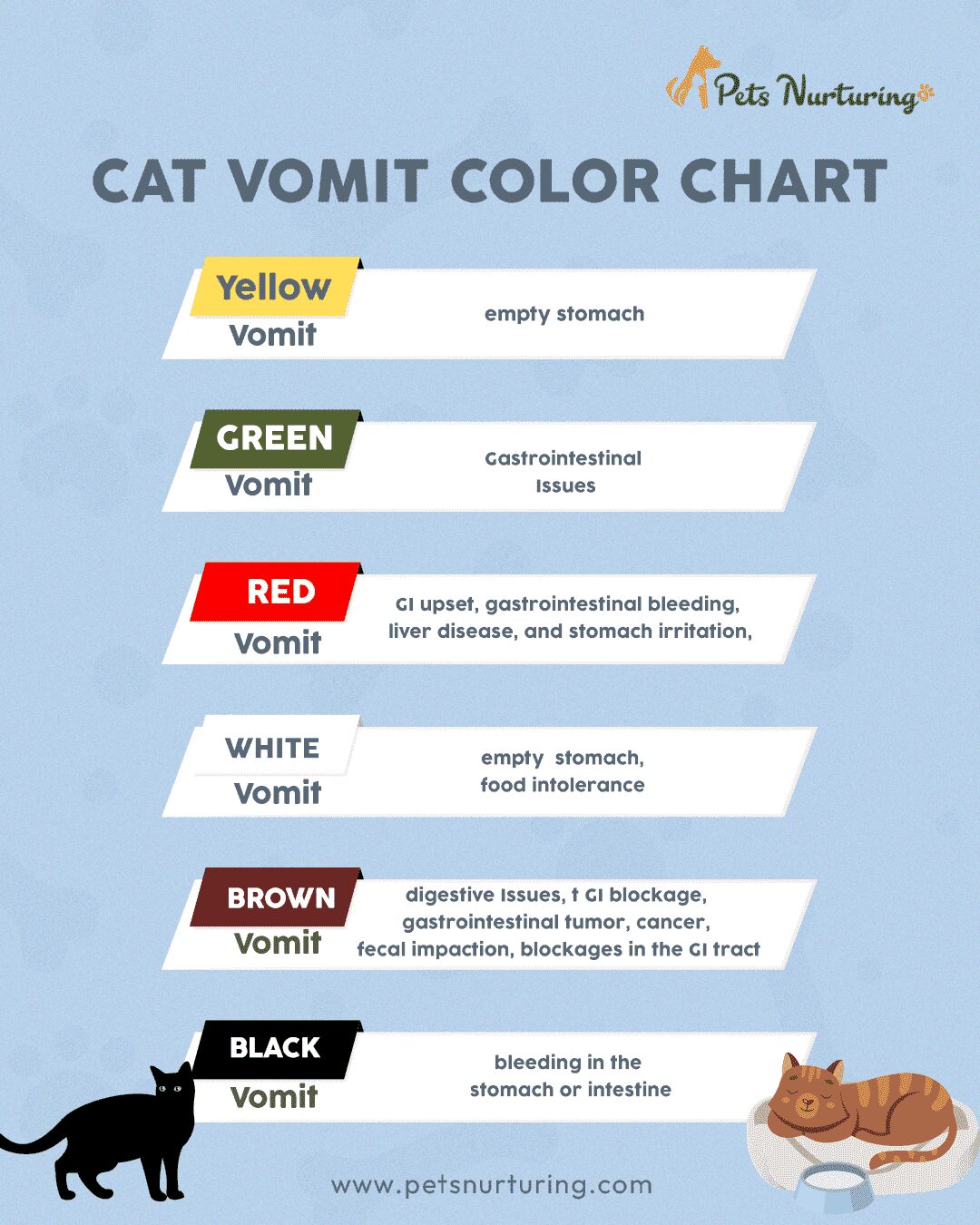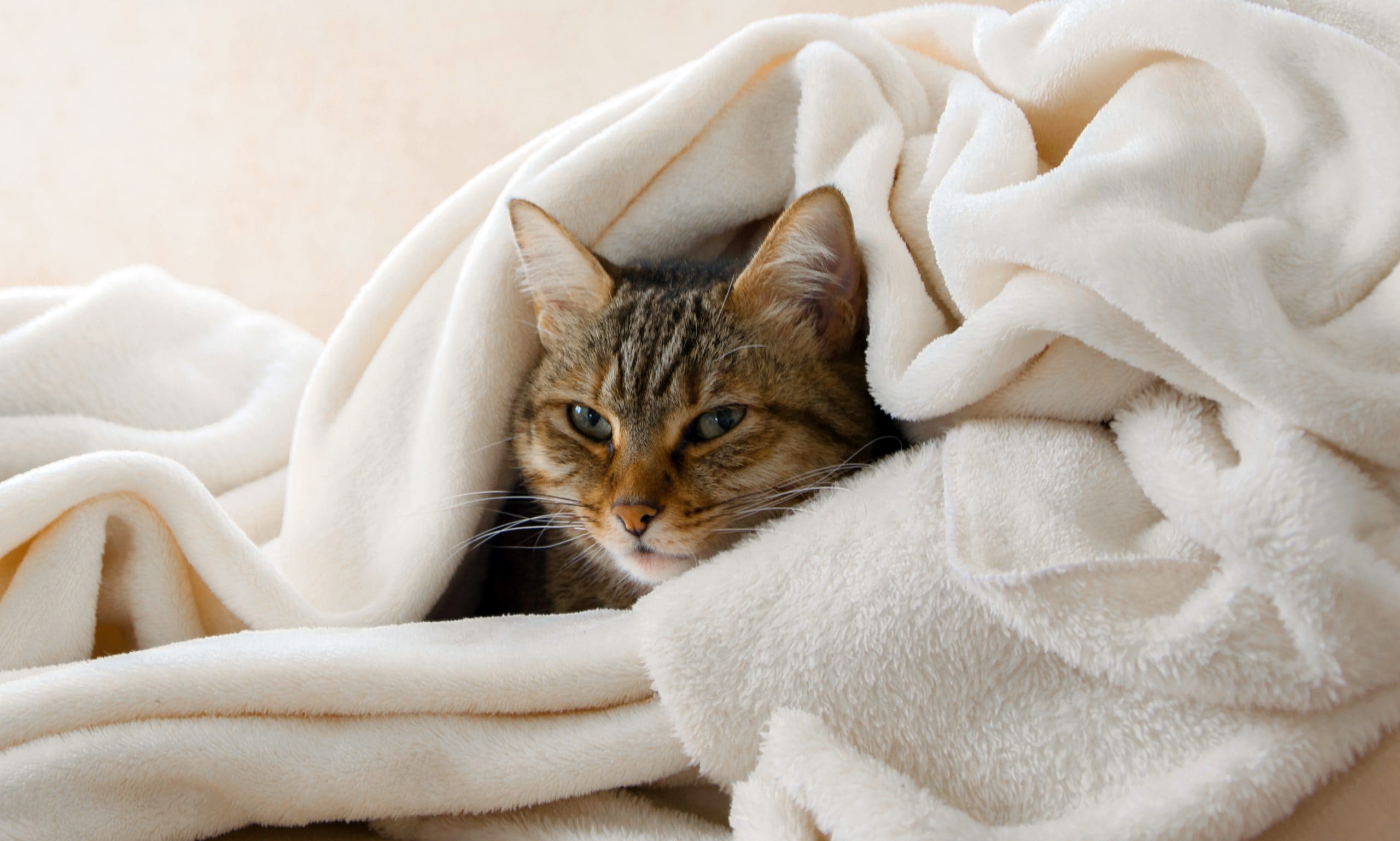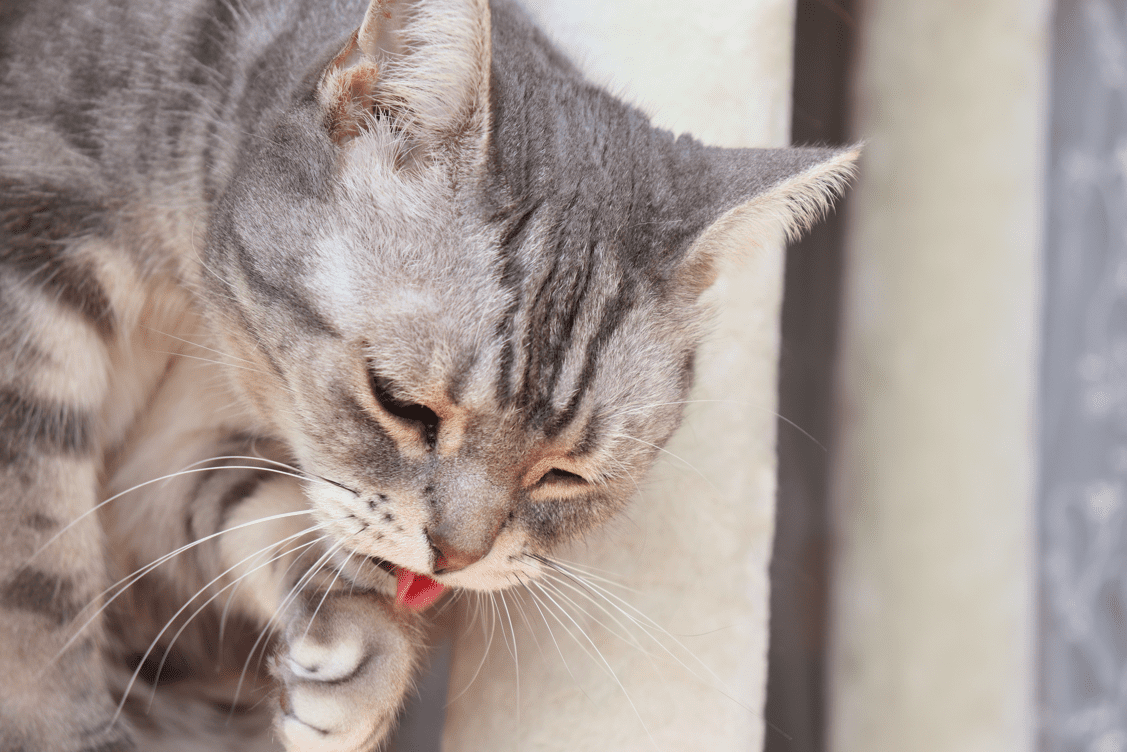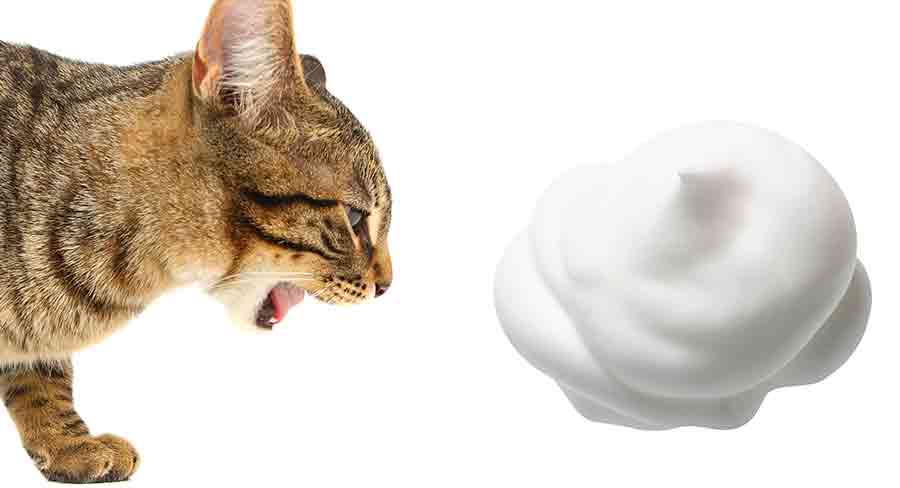Are you a cat owner who has ever been startled by the sight of your furry friend vomiting up a mysterious brown liquid? If so, you're not alone. This common occurrence can be quite alarming, leaving pet owners puzzled and concerned for their beloved feline companions. But fear not! Delving into the brown mystery of why cats vomit this peculiar substance can provide valuable insights that will not only put your mind at ease but also help you better care for your cat's health. Understanding this topic is essential because it allows us to identify potential underlying causes, prevent future episodes, and ensure our cats live happy and healthy lives. So, let's embark on this intriguing journey together as we uncover the secrets behind this enigmatic phenomenon. Get ready to unearth fascinating facts and practical tips that will empower you as a cat owner and deepen your bond with your furry companion. It's time to demystify the brown liquid mystery once and for all!
Key Takeaways:
- Brown vomit in cats can be caused by a variety of factors, including ingesting foreign objects, gastrointestinal issues, or liver problems.
- If your cat is consistently vomiting brown liquid, it is important to consult a veterinarian to determine the underlying cause and provide appropriate treatment.
- Ingesting hairballs can also lead to brown vomit in cats, as the hair can cause irritation and inflammation in the digestive tract.
- Brown vomit may indicate the presence of blood in the cat's stomach or intestines, which could be a sign of a more serious condition such as gastrointestinal bleeding.
- Changes in diet or eating habits can sometimes trigger episodes of brown vomiting in cats, so it is important to monitor their food intake and make any necessary adjustments.
The Brown Mystery: What it is and why cats are involved
Have you ever wondered why some cats vomit a strange brown liquid? It's a mysterious phenomenon that has puzzled cat owners for years. This strange occurrence, known as the Brown Mystery, refers to the act of cats expelling a brown liquid from their stomachs. While not all cats experience this, it can be concerning for those who do.
So why are cats involved in this peculiar mystery? Well, it all comes down to their unique digestive system. Cats have sensitive stomachs and can be prone to digestive issues. Their bodies are designed to process meat efficiently, but certain factors can disrupt this process and lead to the vomiting of brown liquid.
The Role of a Cat's Digestive System
A cat's digestive system is responsible for breaking down food into nutrients that can be absorbed by the body. It starts in the mouth, where they use their sharp teeth to tear apart prey or chew on their food. From there, the food travels down the esophagus and into the stomach.
In the stomach, powerful acids and enzymes are released to further break down the food. The partially digested food then moves into the small intestine, where nutrients are absorbed into the bloodstream. Finally, any remaining waste passes through the large intestine and is eliminated as feces.
This intricate process relies on a delicate balance of enzymes, acids, and beneficial bacteria in order to function properly. When this balance is disrupted or when certain substances irritate the digestive system, it can lead to vomiting - including the expulsion of brown liquid.
Factors that Can Cause Vomiting in Cats
- Dietary changes: Abrupt changes in a cat's diet can upset their stomach and trigger vomiting.
- Ingestion of foreign objects: Cats are curious creatures and may swallow things they shouldn't, such as hairballs or small toys. These objects can cause blockages or irritation in the digestive tract.
- Food allergies or sensitivities: Some cats may have allergies or sensitivities to certain ingredients in their food, leading to digestive upset and vomiting.
- Toxic substances: Cats are sensitive to many substances that humans can tolerate, such as certain plants, medications, or household chemicals. Ingesting these substances can lead to vomiting.
Understanding these factors can help us unravel the Brown Mystery and find ways to prevent it from happening to our furry friends. By being mindful of what our cats eat and ensuring they have a healthy diet, we can minimize the chances of them experiencing this puzzling phenomenon.
Why do some cats vomit brown liquid?
When a cat vomits brown liquid, it can be a cause for concern. The color of the vomit may indicate that there is blood present in the cat's digestive system. One possible reason for this is gastrointestinal bleeding, which can occur due to various factors such as ulcers, tumors, or ingestion of foreign objects. Another potential cause could be liver disease, where the liver is not functioning properly and causing blood to accumulate in the stomach. It is important to monitor your cat closely if they are vomiting brown liquid and seek veterinary assistance to determine the underlying cause and provide appropriate treatment.
Understanding Gastrointestinal Bleeding
Gastrointestinal bleeding refers to any bleeding that occurs within the digestive tract, from the mouth all the way down to the rectum. In cats, this can manifest as brown vomit due to partially digested blood mixing with stomach acids. Common causes of gastrointestinal bleeding in cats include ulcers, inflammatory bowel disease (IBD), intestinal parasites, or even certain medications that can irritate the stomach lining. If your cat is consistently vomiting brown liquid or showing other signs of gastrointestinal distress such as black tarry stools or decreased appetite, it is crucial to consult a veterinarian for proper diagnosis and treatment.
Causes of Liver Disease in Cats
Liver disease can also lead to cats vomiting brown liquid. The liver plays a vital role in filtering toxins from the bloodstream and producing essential proteins for digestion. When it malfunctions, it can result in a buildup of waste products and impaired digestion. Causes of liver disease in cats include infections (such as feline infectious peritonitis), exposure to toxins (such as certain medications or chemicals), autoimmune disorders, or congenital abnormalities. If your cat has been diagnosed with liver disease and is experiencing episodes of vomiting brown liquid, it is crucial to work closely with your veterinarian to manage the condition and prevent further complications.
To help prevent your cat from vomiting brown liquid, it is important to provide them with a balanced diet and avoid feeding them foods that may irritate their digestive system. Additionally, keeping your cat's environment clean and free of potential hazards can reduce the risk of them ingesting foreign objects that could lead to gastrointestinal bleeding. Regular veterinary check-ups are also essential for early detection and treatment of any underlying health issues. Remember, if you notice your cat consistently vomiting brown liquid or exhibiting other concerning symptoms, it is always best to seek veterinary assistance promptly.
A look into a cat's digestive system and its role in the Brown Mystery
The Digestive System of Cats
The digestive system of cats plays a crucial role in their overall health. It is responsible for breaking down food into nutrients that can be absorbed by the body. The process starts in the mouth, where cats use their sharp teeth to chew and tear food into smaller pieces. From there, the food travels down the esophagus and enters the stomach, where it is mixed with digestive enzymes and acids. Next, it moves into the small intestine, where nutrients are absorbed into the bloodstream. Finally, any waste material passes through the large intestine and is eliminated as feces.
The Role of Digestion in the Brown Mystery
In cases of the Brown Mystery, understanding how a cat's digestive system functions can provide insight into why they may vomit brown liquid. When food is not properly digested or if there is an issue with absorption in the small intestine, it can lead to changes in stool color. The presence of undigested blood or bile can give vomit a brownish hue. Additionally, certain foods or substances that are difficult for cats to digest can also contribute to this phenomenon.
Common Causes of Digestive Issues in Cats
There are several factors that can disrupt a cat's digestive system and contribute to the Brown Mystery. These include dietary changes, ingestion of foreign objects or toxic substances, gastrointestinal infections, parasites, and underlying medical conditions such as pancreatitis or inflammatory bowel disease (IBD). It is important to identify and address these issues promptly to prevent further complications.
To better understand how digestion works in cats, let's take a closer look at their digestive system:
In cases of the Brown Mystery, it is crucial to consider the role of digestion and potential causes such as dietary changes, foreign objects, infections, parasites, and underlying medical conditions. By addressing these factors, we can help prevent further complications and ensure the well-being of our feline friends. If you notice your cat vomiting brown liquid or experiencing any digestive issues, it is important to seek veterinary assistance for proper diagnosis and treatment.
Foods and substances that can cause cats to vomit brown liquid
Brown liquid vomit in cats can be caused by various foods and substances. One common culprit is chocolate, which contains theobromine, a toxic compound for cats. Other potential triggers include spoiled or rotten food, certain plants like lilies or poinsettias, household chemicals such as cleaning products or pesticides, and medications not intended for feline use. It is important to keep these items out of your cat's reach to prevent them from ingesting harmful substances.
Chocolate:
Chocolate contains theobromine, which can cause vomiting and other symptoms in cats. Even small amounts of chocolate can be toxic for them.
Plants:
Certain plants like lilies or poinsettias are known to cause gastrointestinal upset in cats if ingested. It's crucial to ensure that your home is free from these plants or keep them in areas inaccessible to your feline friend.
Household Chemicals:
Household chemicals such as cleaning products or pesticides should be stored securely away from your cat's reach. Ingesting these substances can lead to vomiting and other serious health issues.
List of potentially harmful substances:
- Chocolate
- Spoiled or rotten food
- Lilies
- Poinsettias
- Household cleaning products
- Pesticides
By being aware of these potential triggers and taking necessary precautions, you can help protect your cat from vomiting brown liquid caused by ingesting harmful foods and substances.
Symptoms commonly associated with the Brown Mystery in cats
1. Vomiting
Cats affected by the Brown Mystery often experience frequent episodes of vomiting. The vomit may contain brown liquid, which can be a cause for concern. This symptom is usually accompanied by other signs such as lethargy, loss of appetite, and weight loss.
2. Diarrhea
Another common symptom of the Brown Mystery in cats is diarrhea. The stool may appear soft or watery and may also have a brown coloration. Diarrhea can lead to dehydration, so it is important to monitor your cat's water intake and seek veterinary assistance if the condition persists.
Potential causes:
The exact cause of the Brown Mystery in cats is still unknown, but there are several potential factors that could contribute to this condition. These include dietary changes, ingestion of toxic substances, gastrointestinal infections, or underlying health issues such as pancreatitis or liver disease.
It is crucial to keep an eye on your cat's symptoms and behavior to help identify any patterns or triggers that may be associated with the Brown Mystery. If you notice any concerning symptoms or if your cat's condition worsens, it is recommended to consult a veterinarian for a proper diagnosis and treatment plan.
Potential health risks and complications for cats with the Brown Mystery
Cats affected by the Brown Mystery may face various health risks and complications if left untreated. It is essential to address this condition promptly to prevent further harm to your feline companion.
One potential risk is dehydration due to vomiting and diarrhea. Cats rely on adequate hydration for their overall well-being, so it is crucial to encourage them to drink water regularly or provide wet food options that can help maintain their fluid levels.
Additionally, repeated episodes of vomiting can lead to malnutrition and weight loss. Cats may become weak and lethargic, which can further compromise their immune system and overall health. It is important to monitor your cat's food intake and consult with a veterinarian to ensure they receive the necessary nutrients.
If the Brown Mystery is caused by an underlying health issue such as pancreatitis or liver disease, there may be additional complications associated with these conditions. These can include organ damage, inflammation, or impaired digestion. Seeking veterinary assistance is crucial to properly diagnose and manage any underlying health problems contributing to the Brown Mystery.
Tips for preventing your cat from vomiting brown liquid
1. Monitor their diet
Ensure that your cat's diet consists of high-quality, easily digestible food. Avoid sudden changes in their diet as this can lead to gastrointestinal upset. If you suspect a particular ingredient is causing the brown liquid vomit, try eliminating it from their diet and observe if the symptoms improve.
2. Provide clean water
Make sure your cat has access to fresh and clean water at all times. Dehydration can worsen vomiting episodes, so encourage them to drink regularly by placing multiple water bowls around the house or using a pet fountain.
3. Reduce stress
Stress can contribute to digestive issues in cats. Create a calm and comfortable environment for your feline friend by providing hiding spots, interactive toys, and regular playtime sessions. Minimizing stressful situations can help prevent vomiting episodes.
Note:
While these tips may help alleviate some symptoms associated with the Brown Mystery in cats, it is essential to consult with a veterinarian for a proper diagnosis and tailored treatment plan based on your cat's specific needs.
Natural remedies and treatments for addressing the Brown Mystery in cats
When it comes to natural remedies for the Brown Mystery in cats, there are a few options that may help alleviate symptoms. However, it is important to note that these remedies should be used in conjunction with veterinary guidance and not as a substitute for professional care.
1. Probiotics
Probiotics can help restore the balance of good bacteria in your cat's gut, which may aid in digestion and reduce gastrointestinal issues. Consult with your veterinarian to determine the appropriate probiotic supplement for your cat.
2. Dietary modifications
In some cases, switching to a specialized diet formulated for cats with sensitive stomachs or digestive issues can help alleviate symptoms associated with the Brown Mystery. Your veterinarian can recommend suitable options based on your cat's specific needs.
3. Herbal remedies
Certain herbs such as chamomile or ginger may have soothing effects on the digestive system and can be incorporated into your cat's diet under veterinary supervision. However, it is crucial to consult with a professional before introducing any herbal remedies to ensure they are safe and appropriate for your cat.
Remember, natural remedies should always be used cautiously and in consultation with a veterinarian. They may not be suitable for every cat or address underlying health conditions contributing to the Brown Mystery.
When should you seek veterinary assistance for the Brown Mystery?
While occasional vomiting or diarrhea may not always indicate a severe issue, it is essential to monitor your cat's symptoms closely and seek veterinary assistance if any of the following situations occur:
- The vomiting becomes frequent or persistent.
- The brown liquid vomit contains blood or appears black.
- Your cat shows signs of dehydration such as excessive thirst, dry gums, or lethargy.
- There is a sudden change in behavior or appetite.
- Your cat experiences weight loss or becomes noticeably weak.
If any of these signs are present, it is crucial to consult with a veterinarian promptly. They will be able to conduct a thorough examination, perform necessary tests, and provide appropriate treatment to address the Brown Mystery and any underlying health issues. Remember, early intervention can greatly improve your cat's prognosis and overall well-being.
In conclusion, if you notice your cat vomiting brown liquid, it could be due to a variety of reasons such as eating something unusual or having an underlying health issue. It is important to monitor their behavior and consult a veterinarian for proper diagnosis and treatment.
What does blood in cat vomit look like?
The presence of a large amount of bright red blood in cat vomit is noticeable, but identifying blood can sometimes be difficult. A small quantity of blood may appear as a pale red or pink streak mixed with mucus, water, or other substances. Blood clots in vomit typically have a darker red color and resemble gelatin.
What does brown vomit mean?
In numerous instances, this color is actually a variation of red, which signifies the presence of blood. If it appears similar to light coffee grounds, it is essential to seek immediate medical attention. This could be a sign of peptic ulcers, amyloidosis, or some other serious underlying condition. Brown vomiting can also occur as a result of severe constipation.
Is Brown vomit bad?
The presence of brown vomit may indicate the presence of blood in the vomit and could be related to conditions like peptic ulcers and alcohol-related hepatitis. If someone's vomit resembles dark coffee grounds, it is recommended to seek medical attention.
Should I be concerned about brown vomit?
If you vomit brown substance, especially if it resembles coffee grounds and you haven't consumed a large amount of brownies, it is a cause for concern. Bleeding in the stomach can result in darkened blood that is expelled through vomiting, indicating a potentially serious problem.
How do you treat brown vomit?
Individuals who experience vomiting of blood or substances resembling coffee grounds should urgently seek medical help. If they are unable to go to the emergency room, they should call for an ambulance. Other indications of an emergency situation may include chest pain.
How do you know if brown vomit is blood?
Fresh bright red blood is a sign of an active and potentially heavier bleed that requires immediate attention. On the other hand, vomit that looks like coffee grounds, with brown and lumpy appearance, indicates older blood. This may suggest a slower bleed or one that has already stopped. This information was as of June 10, 2022.

















